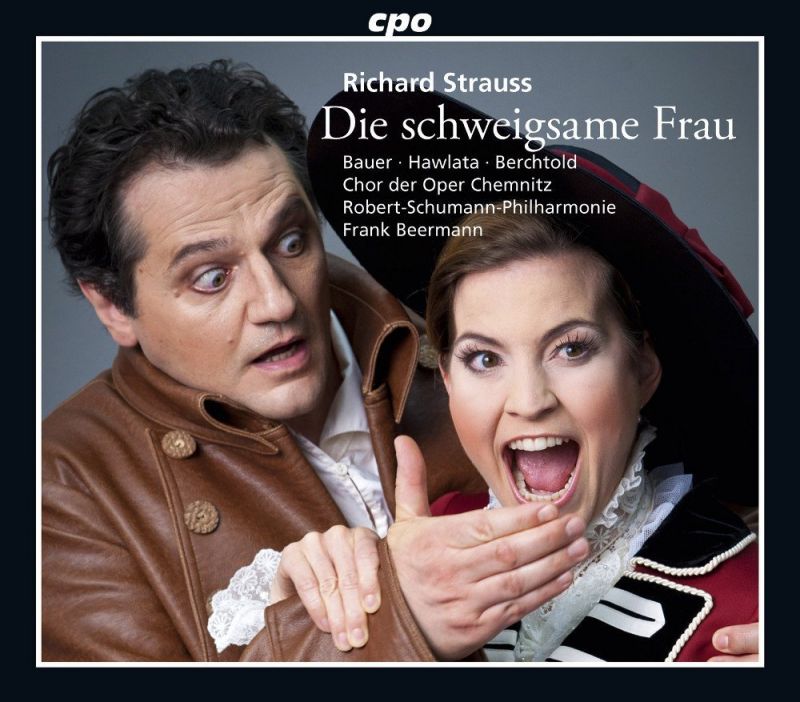STRAUSS Die schweigsame Frau
Strauss’s troubled 1935 opera in Beermann’s studio recording
View record and artist detailsRecord and Artist Details
Composer or Director: Richard Strauss
Genre:
Opera
Label: CPO
Magazine Review Date: 08/2013
Media Format: CD or Download
Media Runtime: 153
Mastering:
DDD
Catalogue Number: CPO777 757-2

Tracks:
| Composition | Artist Credit |
|---|---|
| (Die) Schweigsame Frau, '(The) Silent Woman' |
Richard Strauss, Composer
Andreas Kindschuh, Barber, Baritone Bernhard Berchtold, Henry Morosus, Tenor Chemnitz Opera Choir Frank Beermann, Conductor Franz Hawlata, Sir Morosus, Bass Guibee Yang, Isotta, Soprano Julia Bauer, Aminta, Soprano Kouta Räsänen, Vanuzzi, Bass Martin Gäbler, Farfallo, Bass Matthias Winter, Morbio, Baritone Monika Straube, Housekeeper, Contralto (Female alto) Richard Strauss, Composer Robert Schumann Philharmonie Tiina Penttinn, Carlotta, Mezzo soprano |
Author: David Patrick Stearns
Now in that very century, the opera appears rarely and with a variety of cuts, as in this new studio recording based on what conductor Frank Beermann calls ‘the Dresden version’ that he believes contracts the opera so seamlessly that he wonders if Strauss half expected the cuts to happen. Beermann restores an entire choral ensemble scene in Act 2 but some 20 minutes’ worth of cuts remain, many falling under the heading of ‘more of the same’. Wolfgang Sawallisch’s live 1971 set on Orfeo is even 20 minutes shorter than Beermann.
Strauss’s sense of theatrical timing does indeed seem compromised, as if he was having such a grand time writing it that he didn’t want to let it go. The final curtain goes on for ever. Passages that were so witty in other operas are repeated and elongated. Thus the score is a strange combination of Strauss forgetting what he knew and falling back on what he had already done.
Instead of giving a well-investigated look at the score and dramatic content, the Chemnitz production keeps objective distance in an opera whose characters must be fully inhabited if they are to acquire any operatic reality. The voices in this new set are quite fine: Julia Bauer is the equal of any in the title-role and Franz Hawlata as Morosus has the kind of baritone sound that readily reveals the character’s painful, old-age isolation. But if one is going to pay for three discs in a version of the opera that could fit on two, why not go for the three-disc uncut EMI set conducted by Marek Janowski featuring the wonderfully baritonal Theo Adam? Or get to know the opera in English in the live 1961 Rudolf Kempe/Covent Garden set?
Discover the world's largest classical music catalogue with Presto Music.

Gramophone Digital Club
- Digital Edition
- Digital Archive
- Reviews Database
- Full website access
From £8.75 / month
Subscribe
Gramophone Full Club
- Print Edition
- Digital Edition
- Digital Archive
- Reviews Database
- Full website access
From £11.00 / month
Subscribe
If you are a library, university or other organisation that would be interested in an institutional subscription to Gramophone please click here for further information.




